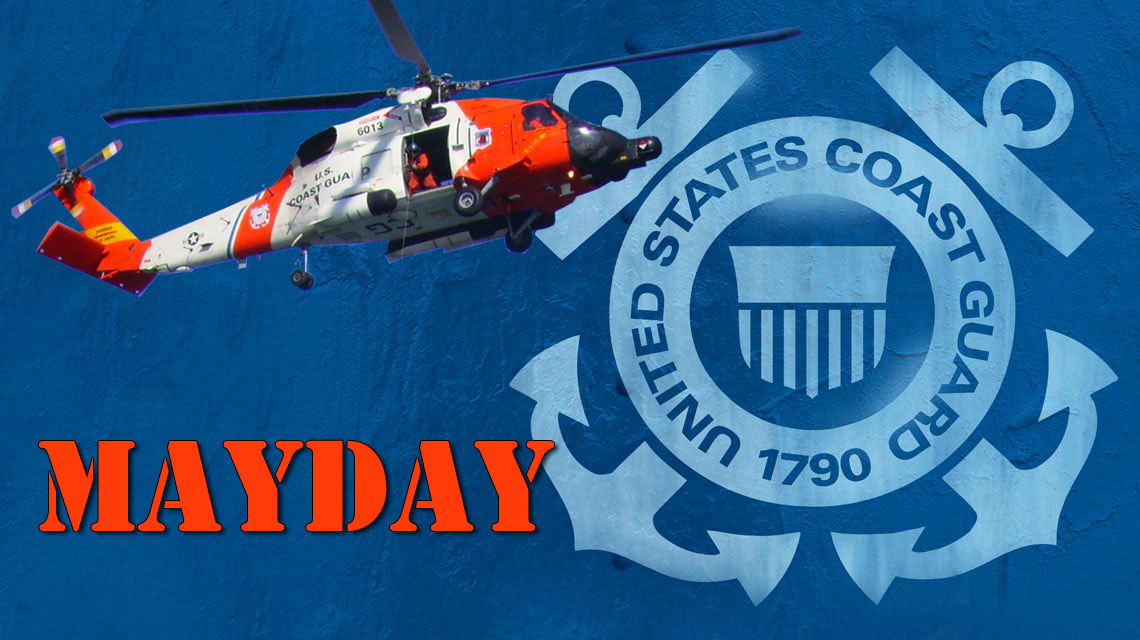
When lives are on the line – your boat is on fire or sinking rapidly with people on board or someone is in imminent danger of dying without immediate medical assistance – you want every available resource dispatched to your position.
A Mayday call will bring that kind of help. Not only will the U.S. Coast Guard respond but the Coast Guard may notify state and local search and rescue units in your vicinity and ask them to respond as well. The Coast Guard will also transmit an Urgent Marine Information Broadcast over marine-band VHF-FM radio Channel 16, notifying all vessels in the area of your emergency. In many cases a nearby Good Samaritan will be first on the scene to render assistance.
A Mayday – the term is derived from the French venez m'aider, meaning “Come. Help me” – should be transmitted if possible via marine-band VHF-FM radio Channel 16 or 2182 kHz MF/SSB. Emergencies can go from bad to worse in seconds so try to get as much information across in as little time as possible.
International Maritime Organization protocols call for beginning the transmission with the word "Mayday" repeated three times, followed by the name and number of your vessel and its position. If you have a marine GPS, relate the latitudinal and longitudinal coordinates. If not, state your distance and magnetic or true bearing from the closest navigational landmark. If time allows, you can also relay your departure point, departure time and the speed at which you were traveling. All of these can help rescuers locate you.